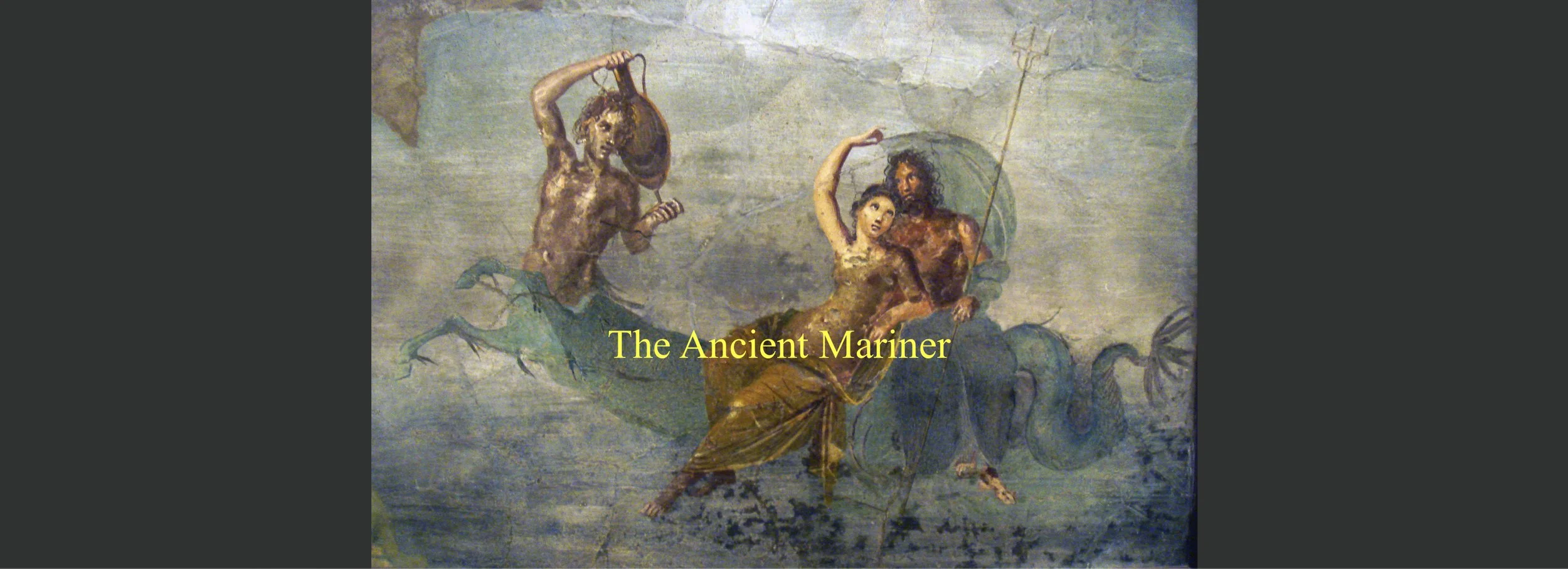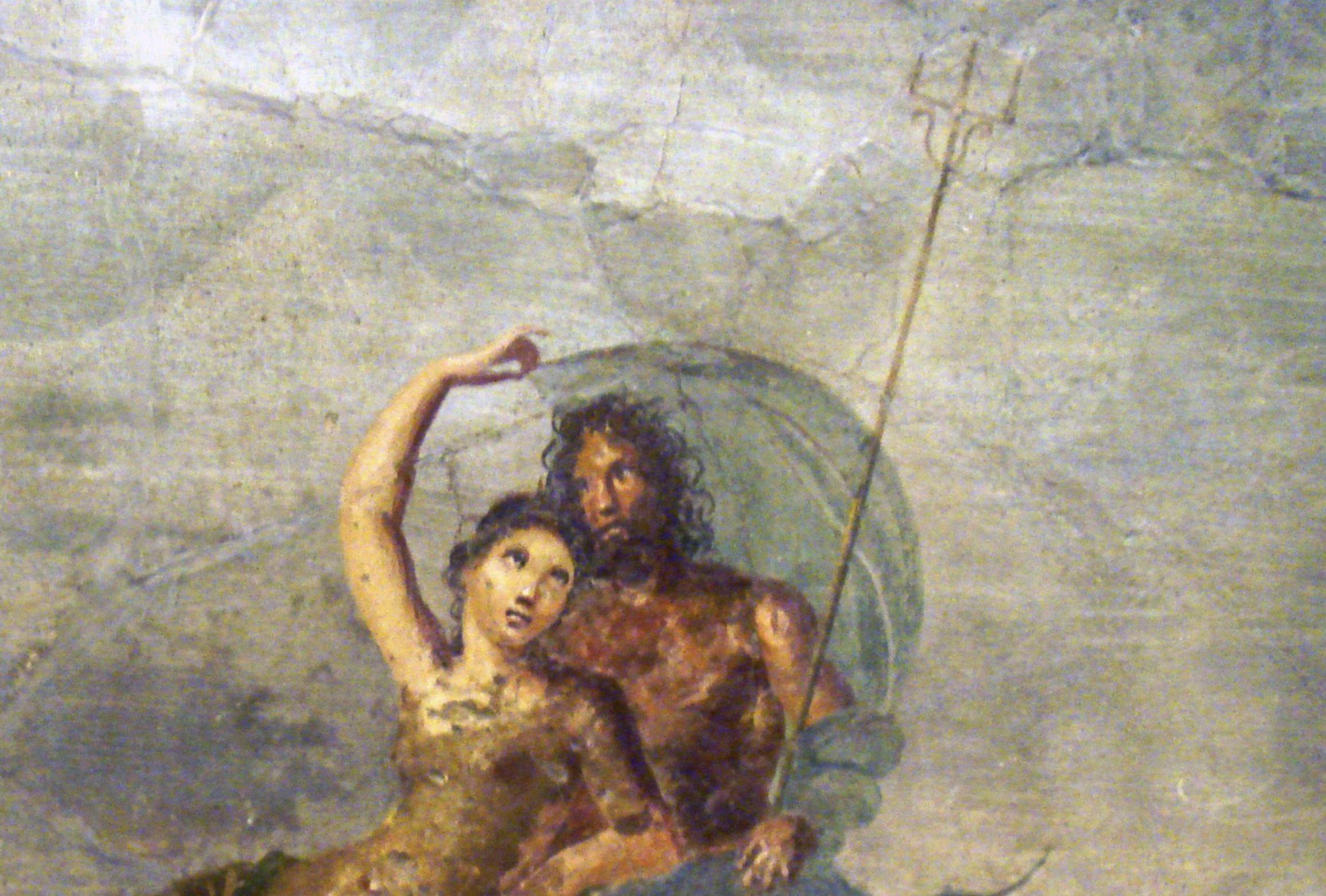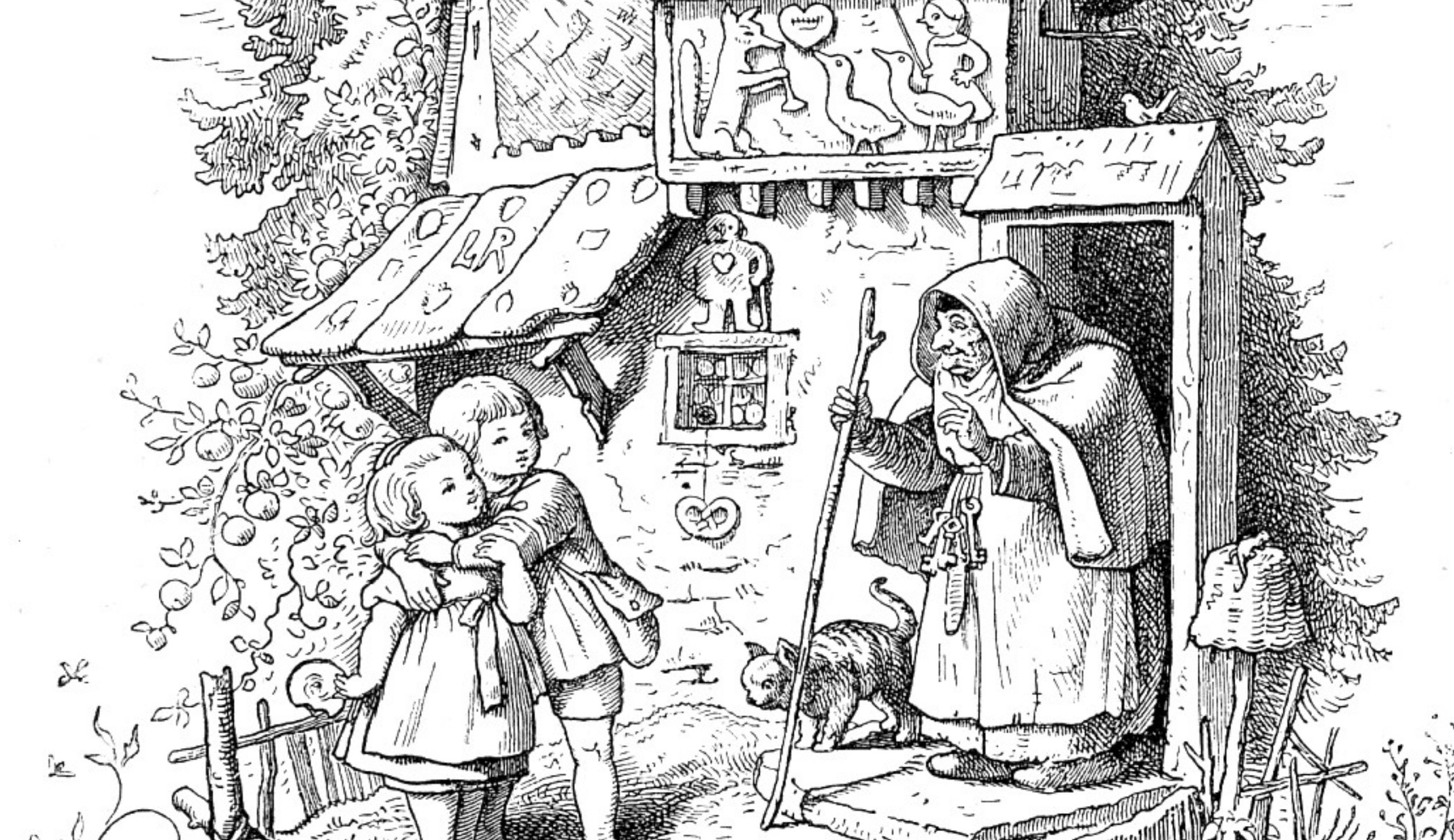Fairy Tales: The Magic of Black Tea 1 🧚 Kunming & Black Diamond
The Ancient Mariner
The dormitory on the top floor of the Kunming Hotel was a bit odd: it looked like a wartime hospital, yet there were coloured lights on the ceiling. Baldric read in his guidebook that the dormitory used to be a discotheque. At least it was better than his cold, lonely room in Dali.
The dormitory was odd, yet there was something even more odd. Baldric couldn’t quite put his finger on it. It was as if someone had put a picture on a page before he’d turned it. Or as if someone had slept in his bed before he’d slept in it. It wasn’t as much déjà vu as it was déjà vécu: he remembered living something at the same time he was living it.
And this, strangely enough, made him remember a cold winter day in Black Diamond. Baldric was on his way to a party when Ragor waylaid him on the street. Baldric was thinking about Alicia, about the miracle of her golden skin, even in the middle of winter. He still couldn’t believe she’d asked him to a party at Patricia’s house. He looked up the street and saw Patricia’s house, which seemed to be made of gingerbread. He saw the snow on the roof, and swore it was icing sugar when Ragor clutched his arm from behind. He clutched him just above the elbow with his skinny fingers, worn thin from flipping pages in his voluminous library.
Ragor fixed Baldric with his glittering eye, and told him a story about a sea journey he’d taken years ago. Ragor’s words echoed in the cold quiet street. This echoing seemed natural to Baldric, yet to Ragor it was supernatural. Speaking in an oracular voice, redolent with golden chalices and doom, he said: “Our words echo in history, bouncing off these houses just as they bounced off the Acropolis, the battlements of Troy, and the ramparts of Uruk, the foundations of which were laid by the Seven Sages. But now the great city of Uruk lays waste in the Dust of Time. Like Pompeii. And yet, when we dig into this dust we find the water starts to flow again, and the clay itself, impregnated with the colour of sea and air and human skin, comes to life.”
Poseidon and Amphitrite. Ancient Roman fresco (50-79 d.C.), Pompeii, Italy. Author: Stefano Bolognini (From Wikimedia Commons)
Baldric had seen the Pompeii fresco Ragor was referring to: a reproduction of it was in his spa, across from the small bar. Baldric assumed the fresco was there so that Ragor could brag about bathing al fresco, or so that his Filipina water-nymphs would feel at home, seeing as it was placed between two large posters of a beach on Boracay and a rice-terrace in Northern Luzon. Ragor hadn’t given the image much thought. It looked like part of an old comic strip. He certainly didn’t know that the bearded, scruffy man with the pitchfork was the Lord of the Seas.
The blank look on Baldric’s face didn’t deter Ragor, who seemed determined to school Baldric in everything he didn’t know about art, ladies on sea-horses, and pitchforks: “The beauty of art is eternal — and ambiguous. Amphitrite’s golden arm will always remain outstretched, yet she seems to hold the wind as if in a sail, within which we find Neptune, the god of the sea. Yet does Neptune need, or even want, her cover? She may be the Queen of the Sea, but he’s the King. And the sea-horse will always gallop — but which is it, through ocean or through air? And Poseidon will always sit behind them, pitch-fork pointing to the heavens. Is this comforting or unnerving? Is he just pretending to sit in the back seat? Amphitrite’s veil looks like a sail, yet it’s positioned in the wrong direction, for we can see that the sea-horse is driving them forward, not backward.”
Ragor’s grip on Baldric’s arm was rock solid. The grip was affecting his hand, which startled to tingle. So Baldric nodded in agreement to reassure Ragor that he was following what he said. He also leaned against the low fence beside them to indicate that he wasn’t going anywhere. Ragor loosened his grip somewhat, yet Baldric’s leaning posture backfired because it gave Ragor the impression that he was free to develop his thesis at greater leisure and in greater detail: “Just when we think we’re the first to see the ambiguity at the heart of existence, along comes a fresco two thousand years old, buried under the dust. We look at the fresco and think, How strange, so long ago! until we realize that the art of the past lives in the moment. Eternity goes backwards as well as forward. Our language can barely grasp it: at this moment, two thousand years ago, we’re still riding a fabulous sea-horse, the veil of beauty sailing us across the blue-green waters.”
🧚
The Fractalgestalt
Baldric didn’t know what to make of this strange monologue. But it wouldn’t have mattered even if he did, because Ragor’s discourse so far was a prelude to a larger dissertation. The irises of Ragor’s eyes swirled slowly from sea-green to teal, all the while his imagination wheeled out so many ideas that his brain had a hard time laying them on solid tracks. His eyes glazed over in a navy-blue mystical trance, and his skinny finger pointed to the clouds: “And yet the art of ocean and air can’t match the art that swirls within our DNA. Lime plaster, however so brilliantly coloured with yellow ochre, can’t match the artistry of inner nature. The Hand of Fate must inscribe to the smallest subatomic particle — or not write at all! Cursive, cuneiform, fractal of epic, no matter the script, it’s the gestalt that matters.”
“Perceptions are like philosophies in that they’re made of atoms and smaller parts, and yet it’s the way these smaller parts fit together that counts. It’s the eyes of Poseidon that count, not that he lets his body be covered by the veil of Amphitrite. What counts is the infinitely complex form we don’t see: the subatomic form of the fractalgestalt. What lies within Poseidon’s brain. We have an infinite number of these forms swimming within our DNA. However much we may believe that we’re the generator, the creator of an idea or action, it’s created by an inner structure, a fractalgestalt so tiny that we’re not even aware of it. However much we pride ourselves in saying something original, it’s all been said before. We may think we’ve discovered some place or some feeling, yet all the combined forms of space and emotion are already within us. The present merely brings them out, just as a certain geometrical shape or a certain smell brings out the complex memory of an entire experience.”
Baldric was impatient to get to the party, and away from this grey-beard loon. But Ragor’s eyes gripped him harder than his fingers, and he couldn’t choose but hear: “Don’t imagine I don’t see you sitting there, squirming inside, yearning to be off to the tryst and the wedding song. So I’ll get to the point. You may think that you don’t need to worry about the remembrance of things past. You may tell yourself that you’re off to a party, and nothing can stay the bells and the flowing wine. You may repeat to yourself that A thing of beauty is a joy for ever: / Its loveliness increases; it will never / Pass into nothingness. And this may be so, but it’s not the only thing that’s so. I too was once like that, dreaming in the clouds, making the mistake that because Keats got one thing right, he got the next thing right as well. It’s one thing to say A thing of beauty is a joy forever and quite another to say Beauty is truth, truth, beauty, — that is all / Ye know on earth, and all ye need to know. The truth of the matter is that you need to know a great deal more.”
“I too was once on my way to a party, on a dark winter street where the snow-covered roofs looked like icing sugar. But then life grabbed me by the DNA and twirled me downward, shook me from the present and showed me that cannibals can live in gingerbread houses.”
“Like me, you’ll find out what it’s like to be a stranger in a strange land. Riding the rails into an exotic city, you’ll find yourself in a dormitory with coloured lights on the ceiling and soft white beds. You’ll meet a dreamlike beauty with perfect skin and charming accent. Together, you’ll mount a rickety staircase, and you’ll think you’re entering Heaven. You’ll drink from the chalice and eat the forbidden fruit. Like a god, you’ll see the meaning of life. But beware: weave a circle around this knowledge if you can. This magic will only happen once, and it’s an ambiguous magic at best. Like Proust before you, you’ll eat and your eyes will be opened. You’ll taste the sweetness and the potency of time as if you were in a magical garden six thousand years old. The moment you sink your teeth in, you’ll descend the steps of Time, just as surely as you climbed the stairway to Heaven. Each step will take you into an understanding of what it means for a memory to be at once forever in the present and irrevocably in the past. And you’ll see that the past has no final landing, no bottom of the sea, no final resting point.”
“When you come back to yourself, you’ll feel the albatross hanging around your neck. It’ll hang there forever, even if you take it off and throw it from the highest cliff. Your shoulders will be grooved with its fantastic feathers and infinite weight. Poe got it all wrong: it’s evermore not nevermore. Albatross or raven, by the mere act of living you’ll shoot this innocent bird, this harbinger of doom who’ll take you over the oceans on an eternal suicide journey back and forth from the tropics to the South Pole. Weeping for the lost sun-filled moment of her golden skin, all you’ll remember is the memory of her, the ever-present memory of her as you cry hot salt tears on the icy deck of Time.”
🧚
At the time Baldric dismissed what Ragor said, knowing that too much poetry can warp people’s minds. At least with Proust you knew where you were: in the commune of Illiers-Combray, in the department of Eure-et-Loir, in the region of Centre-Val de Loire. But where were Coleridge and Poe? In “the land of mist and snow” and then beneath “a hot and copper sky”? Next to “the uncertain rustling of each purple curtain,” in “that darkness peering,” in “the chamber turning,” and “on the Night’s Plutonian shore”? Line upon line, these fairy tales construct imaginary stages in your mind. They make you think things are real when in fact they have no more substance than the empty air between the pages. The greatest poet ever, Shakespeare, understood this better than anyone:
The poet’s eye, in fine frenzy rolling,
Doth glance from heaven to earth, from earth to heaven;
And as imagination bodies forth
The forms of things unknown, the poet’s pen
Turns them to shapes and gives to airy nothing
A local habitation and a name.
🧚
Even though Baldric dismissed the memory of his encounter with Ragor, it continued to agitate his mind. It made him jumpy, even though his body was dead tired.
He hadn’t slept well in his freezing room in Dali, and was looking forward to a good night’s sleep in this dormitory with its warm yellow light and its thick folds of white cotton. It didn’t matter which bed he chose, since they all looked just right. He also looked forward to the dreams he might dream between the sheets, which he would happily mistake for reality. It didn’t matter if someone dreamed them before, as long as he could dream them tonight.
Staring dreamily into the room, he noticed a bare foot behind one of the pillars.
Circling the room, he saw a mass of chestnut hair sprawling over a pillow onto a backpack with a blue and white flag. On second thought, the bed beside it seemed just right, although it had a towel on it. He slid the towel onto the floor, dropped his backpack next to the sleeping figure, and went out to explore the city of Kunming.
🧚
After a strong coffee and a chicken baguette at the famous French café, he strolled around Green Lake.
He wandered into the suburbs, and had a late dinner at a half-empty restaurant. Exhausted, he went back to his hotel, where he fell headlong into the cotton sheets. He sank immediately into a deep sleep. Engrossed in dreams of green lily-pads and pointy temples reflected in water, he couldn’t remember a word Ragor said.
🧚
Next: ✏️ Back to Black
Contents - Characters - Glossary: A-F∙G-Z - Maps - Storylines







